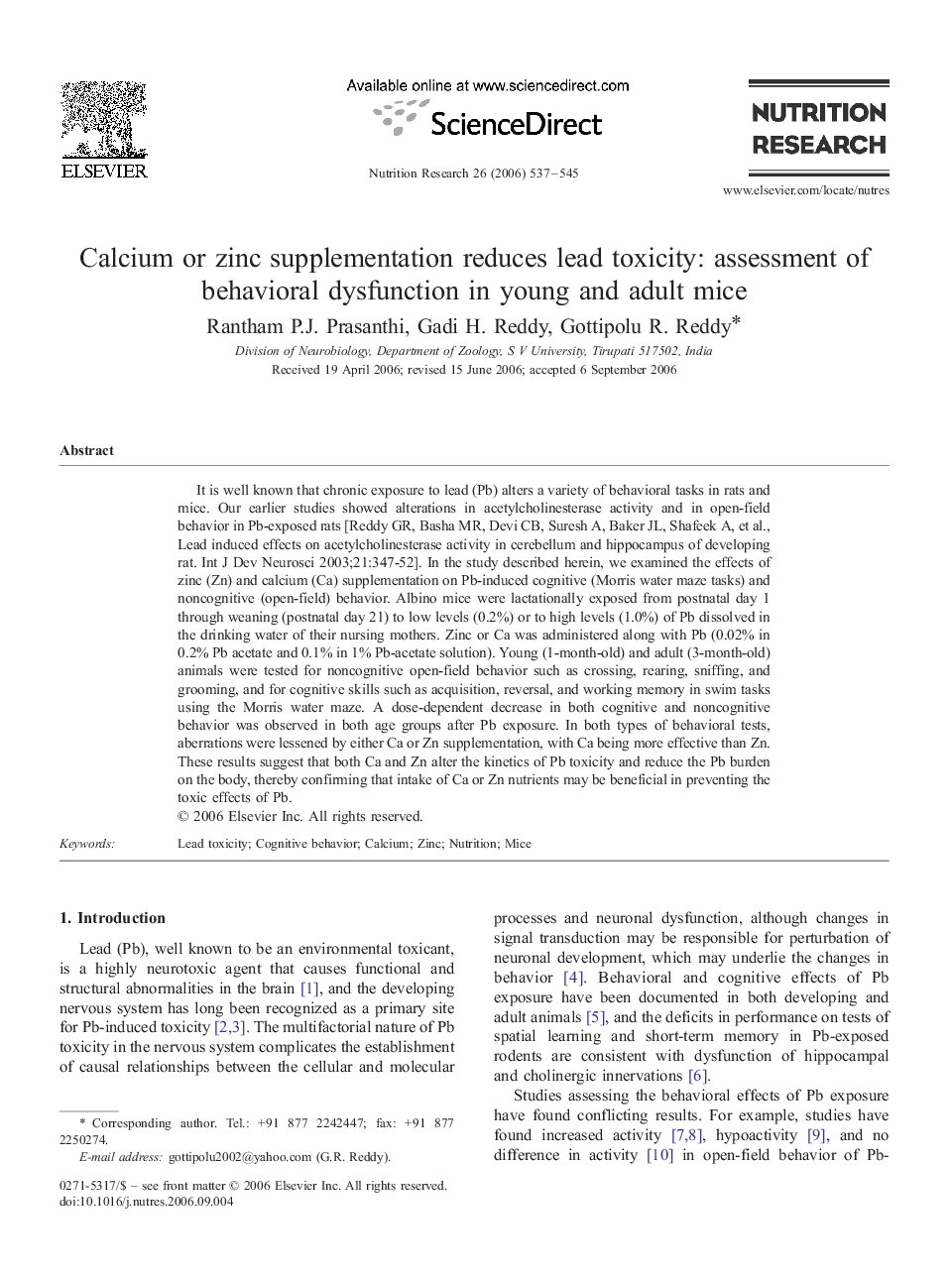| Article ID | Journal | Published Year | Pages | File Type |
|---|---|---|---|---|
| 2809729 | Nutrition Research | 2006 | 9 Pages |
It is well known that chronic exposure to lead (Pb) alters a variety of behavioral tasks in rats and mice. Our earlier studies showed alterations in acetylcholinesterase activity and in open-field behavior in Pb-exposed rats [Reddy GR, Basha MR, Devi CB, Suresh A, Baker JL, Shafeek A, et al., Lead induced effects on acetylcholinesterase activity in cerebellum and hippocampus of developing rat. Int J Dev Neurosci 2003;21:347-52]. In the study described herein, we examined the effects of zinc (Zn) and calcium (Ca) supplementation on Pb-induced cognitive (Morris water maze tasks) and noncognitive (open-field) behavior. Albino mice were lactationally exposed from postnatal day 1 through weaning (postnatal day 21) to low levels (0.2%) or to high levels (1.0%) of Pb dissolved in the drinking water of their nursing mothers. Zinc or Ca was administered along with Pb (0.02% in 0.2% Pb acetate and 0.1% in 1% Pb-acetate solution). Young (1-month-old) and adult (3-month-old) animals were tested for noncognitive open-field behavior such as crossing, rearing, sniffing, and grooming, and for cognitive skills such as acquisition, reversal, and working memory in swim tasks using the Morris water maze. A dose-dependent decrease in both cognitive and noncognitive behavior was observed in both age groups after Pb exposure. In both types of behavioral tests, aberrations were lessened by either Ca or Zn supplementation, with Ca being more effective than Zn. These results suggest that both Ca and Zn alter the kinetics of Pb toxicity and reduce the Pb burden on the body, thereby confirming that intake of Ca or Zn nutrients may be beneficial in preventing the toxic effects of Pb.
